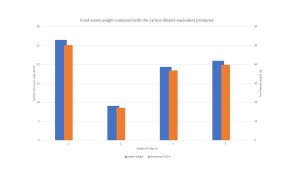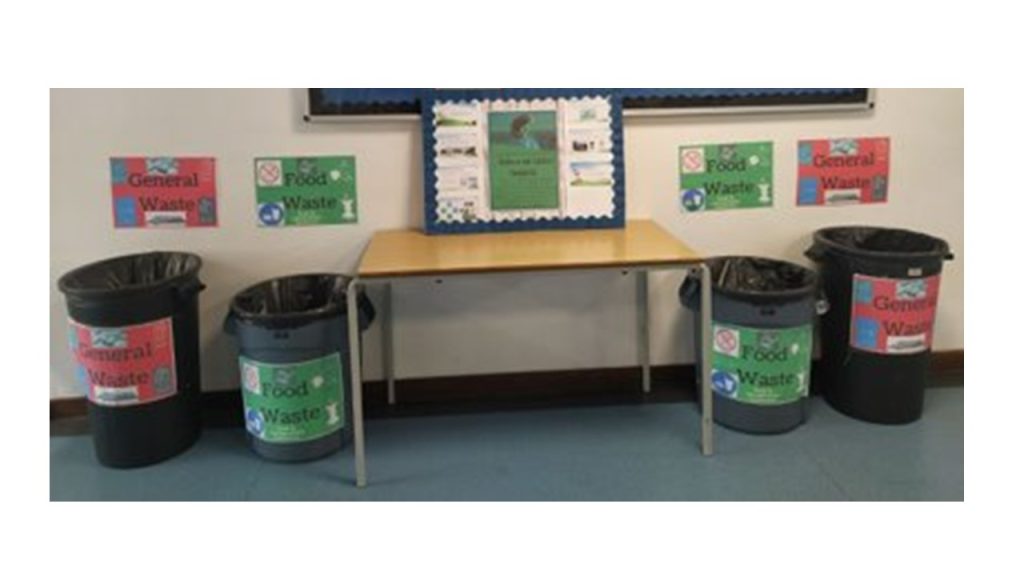Climate Detectives Projects 2022-2023
Project title: Investigating food waste at our school
Team: The Guardians of the Ice caps
Wexham School Slough United Kingdom 5 Student’s age: 14-15 years old
How does our food waste contribute to our carbon emissions?

Our main goal was to investigate how much food waste we generate as a school and the volume of carbon emissions we produce as a result. All of our food waste is sent to landfill and will take years to break down, releasing carbon emissions in the process which contributes to climate change. We aimed to find out how much food waste and the volume of carbon emissions we produce, and then look into solutions of how we can better manage our food waste. The first step in our project was to find out how much food waste the school produced. We monitored this over the 4 weeks of March 2023. This was done by creating posters, PowerPoint presentations and introducing a new bin system into the canteen so students could separate their waste. This proved challenging at first as many students were not used to separating their waste. We had to make it clear what was classed as food waste and what was general waste, this involved creating a second information PowerPoint and more posters to raise awareness. At the end of each day the food waste was then weighed. At the end of each week we then used a waste converter to work out the volume of carbon emissions produced in that week. We then compared this to how much electricity this would provide for 1 household.

We found that on average, the day that had collected the most food waste over the 4 weeks was Monday, this could be due to the canteen choices being less popular on this day. Thursday appeared to be the day where least food waste was collected. However there are anomalies in the data, on the first Thursday of data collection, the weight of food waste was much higher than subsequent Thursdays, weighing 5.015kg compared to between 2-3kg. Our data also only took into account the waste from the bins inside the canteen. We have numerous bins around the school site which may also have contained food waste. Therefore to improve our results if we were to complete the project again, all bins inside the canteen and outside should be weighed.
The days that produced the highest volume of waste also generated the most carbon dioxide emissions. In total over the 4 week period 144.32 carbon dioxide equivalents were produced, which is enough to generate power for a household for 12.89 days. Week 1 produced the highest number of emissions at 50.29 carbon dioxide equivalents. This proves that the food waste produced at school could provide benefits to households/school such as providing energy instead of polluting the atmosphere in a landfill site.
We would like to continue working on improving the school environment, making it more sustainable. At the moment all of our food waste goes to landfill producing carbon dioxide emissions contributing to climate change, but we would like to use it for other purposes. We will be looking to use what we collect as compost for our school garden and have enjoyed researching the possibilities of generating energy from our food waste. We have looked into selling our food waste as biofuel. We have found a scheme where food waste can be sold, from which we can use the profits to renovate the school garden. Therefore we will be doing our bit for the climate by stopping the waste going to landfill, helping the wider community by providing a source of energy and helping the local community by developing a garden which will grow produce for those in need and help to combat Climate change in a small way with plants photosynthesising.
Projects are created by the teams and they take the full responsibility of the shared data.
← All projects




